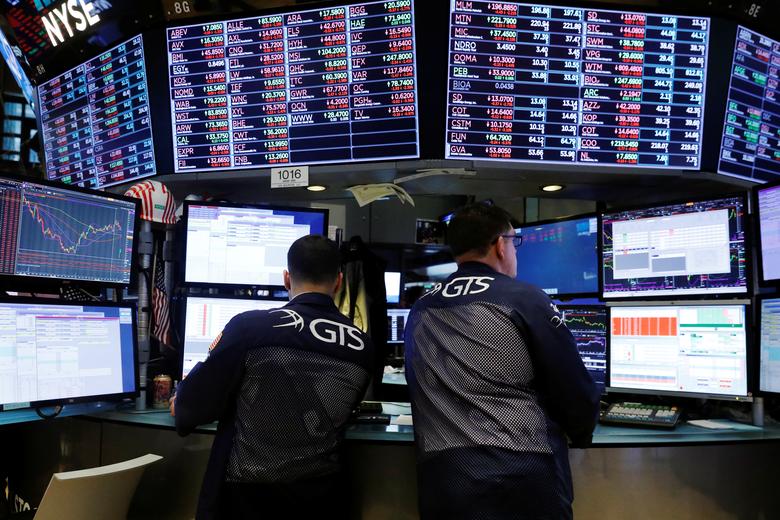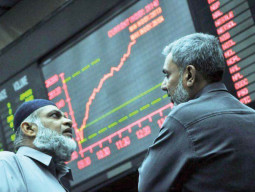
Shares had initially gained, led by Asia, where markets cheered further loosening of coronavirus restrictions in the region – New Zealand will ease some curbs from Thursday, and Japan plans to end a state of emergency for areas where infections have stabilised.
In Europe, millions in France are set to emerge cautiously from one of the region’s strictest lockdowns, while Britain on Sunday laid out its own gradual path out of lockdown.
But South Korea warned of a second wave of the virus as infections rebounded to a one-month high, while new infections accelerated in Germany, which has been easing its lockdown.
Investors have tried to stay optimistic in recent weeks, opening up a gap between dire economic conditions on the ground and a stock market rebounding because of huge stimulus programmes as well as on the timing and speed of any recovery.
A spike in new cases in countries that have already begun to relax restrictions on commerce would jolt market confidence badly if it led governments to reintroduce some lockdown measures.
“If we do have a second wave and lockdowns, that’s almost the worst outcome from an economic perspective,” said Guy Miller, chief market strategist at Zurich Insurance Company.
Miller said that would “postpone business investment indefinitely” and see consumers retrench as hopes for a quick economic recovery were dashed.
He said the next two or three weeks would be “pivotal” in demonstrating how businesses and consumers were responding to the loosening of lockdown measures.
The Euro Stoxx 600 was down 0.87%. Germany’s Dax was 0.78% lower and Britain’s FTSE 100 0.36% in the red.
Energy and travel stocks were among the hardest hit. Wall Street looked set for a lower open after Friday’s rally, with e-Mini futures for the S&P 500 falling nearly 1%.
World shares measured by the MSCI world equity index, which tracks shares in 49 countries, reversed earlier gains and were down 0.15%.
The index has risen nearly 30% from its March lows but remains down 13.4% in 2020. As investors look to the reopening of economies, most have ignored dismal economic data.
The most recent was Friday’s US jobs report, which showed the biggest jump in unemployment since the Great Depression.
But the numbers were not as bad as economists had expected, and analysts say that markets have already priced in the huge hit to growth and employment.
Record monetary and fiscal stimulus has fired up the rebound in asset prices. “Risk bears are being sent into hibernation,” said Kit Juckes, a markets strategist at Societe Generale.
“Markets focus on reopening economies and policy activism, bears struggle to understand how they can ignore reinfection and economic destruction.”
Bond markets seem to think any economic recovery will be slow – two-year US government bond yields have hit record lows at 0.105% and Fed fund futures last week turned negative for the first time ever.
The rally in US bond prices has come even as the US Treasury plans to borrow trillions of dollars in the next few months to plug a gaping budget deficit.



1730959638-0/trump-(19)1730959638-0-165x106.webp)













COMMENTS
Comments are moderated and generally will be posted if they are on-topic and not abusive.
For more information, please see our Comments FAQ